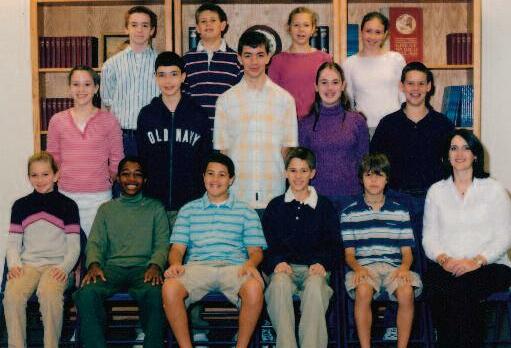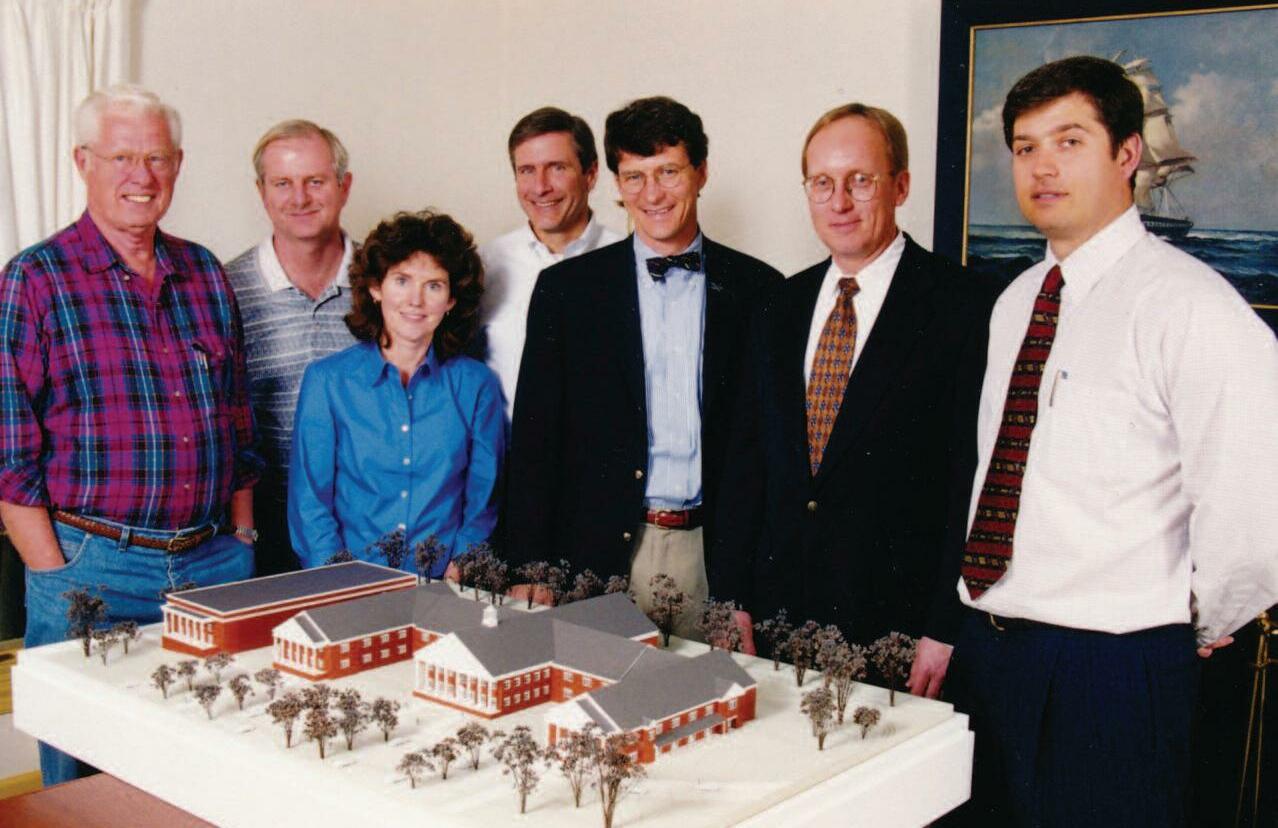
10 minute read
in their words
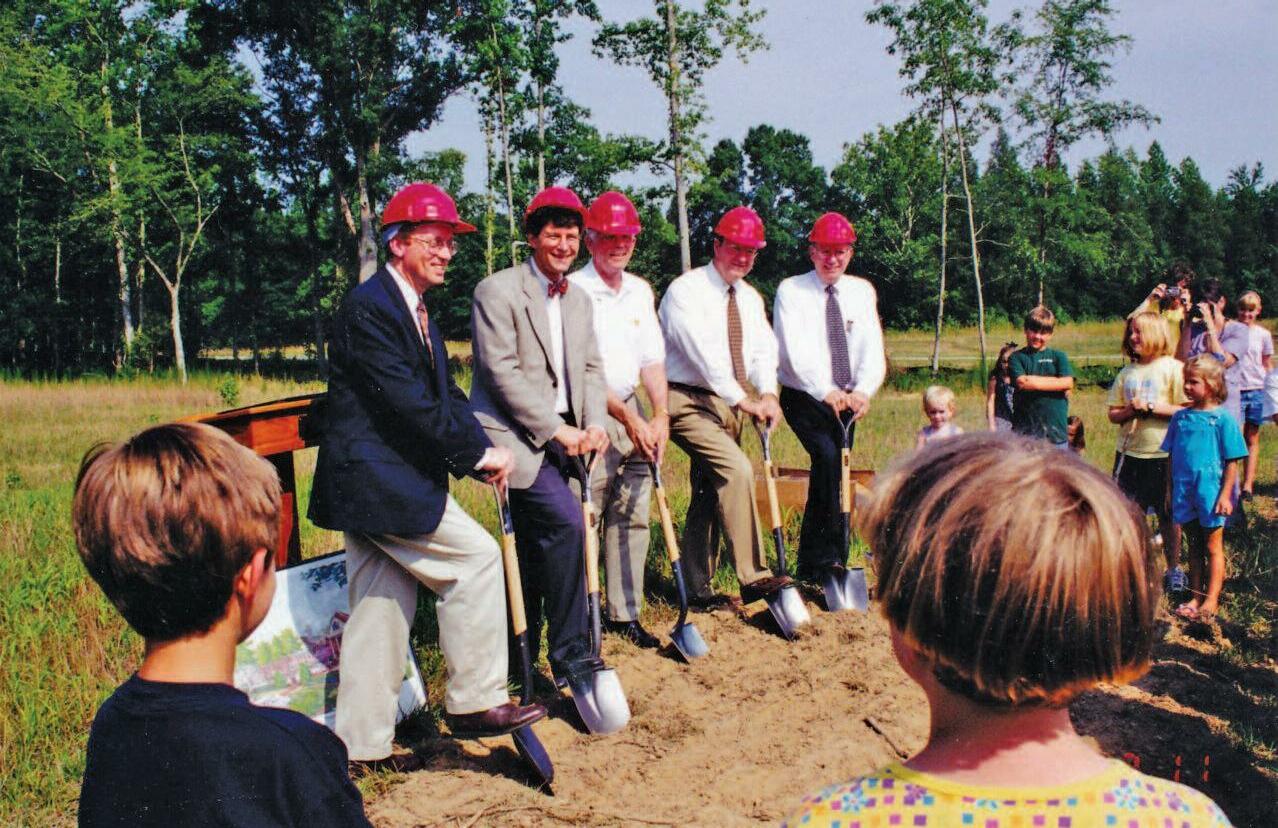
A CONVERSATION WITH SOME FOUNDERS AND STAFF
twenty-four years ago, trinity’s founders established a school where robust faith and serious learning meet. over trinity’s first decades, a truly remarkable group of faculty have gathered at trinity, and the school’s impact has grown—from rented classroom space with 3 teachers and 39 students, to our current permanent campus, where more than 75 teachers shape the lives of over 500 students every year. read in our founders’ own words how trinity School began.
meet some of our early Trinity supporters
Jane adams
Founding Board member
rick adams
early Board member
fred Brooks
Chair of the Head of School Search Committee and later Board chair
nancy Brooks
Founding Steering Committee member and early Board member
Bill Cobey
early Board member and longtime Board chair
rita Davis
Founding teacher
Chip Denton
Founding Board member and Head of School
Desirée Denton
Founding Steering Committee member
Sonya Hove
early employee, former Board member, and trinity alumni parent
Jim lamont
Founding Board member
Janice mcadams
early Board member and first Director of Advancement
laura Sayre
early employee and current Director of it
Kathy Tyndall
Founding Board member and early trinity teacher
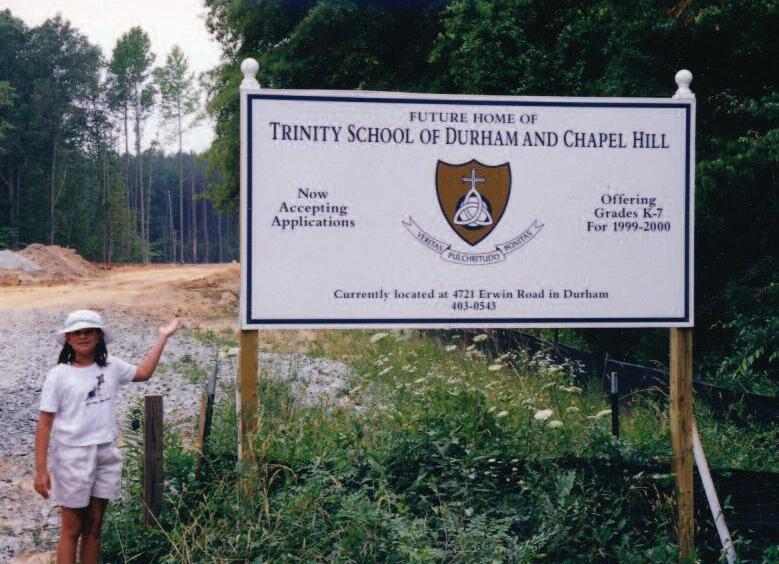
How did trinity School start?
Kathy: nancy Brooks, one of the founding Board members, had a meeting in her sunroom in about 1994, and it was a group of a lot of moms in the community who were interested in school—starting a school for their children. Desirée: i remember naively saying, “well, i’ll go home and ask my husband if he would help do that. ” Chip: A friend who had his kids at the Geneva School in orlando, Florida, a classical Christian school, sent me a copy of Dorothy Sayers’s “the Lost tools of Learning. ” i remember one Sunday afternoon at our house on Colony woods Drive sitting down and reading that and thinking, this is the kind of school that i would love to have my kids at. on January 23, 1995, Desirée and i wrote to about eight people and invited them to come to our house to talk about the possibility of a new school.
who was there?
Jim: i showed up at the Denton household on February 1, 1995, where Chip pulled together 6–8 people. Kathy tyndall was there. nancy Brooks was there.
nancy: Chip asked each one to say what they dreamed of for the school, what special aspects they were interested in. the funny thing is, i don’t believe one person in that room knew what other people in that room were talking about, and because of that we had to begin defining what we meant.
what was the process of starting trinity School like?
Jane: it was a labor of love, very much so. we were all energized by the thoughts of others and the things we read and were just excited to be a part together of this new project that was very intentionally thought through. it wasn’t just “Let’s have a school—we need a teacher—we need some books—we need some students. ”
Jim: Dave english and i did the first marketing for the school. we met with local churches throughout the Durham–Chapel Hill area and did a little...what we called a dog-and-pony show, and “Here’s the vision for this school. ” i remember taking the check from the first students—Ben and Davis Murphy. when you get your first customers, you note that, and they were the first two. i thought, “wow! Somebody is going to pay to do this!”
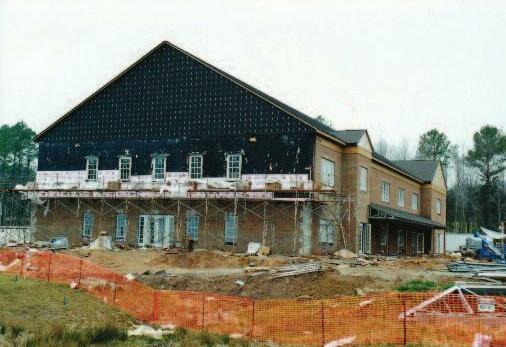
Can you share some memories of those first years at trinity?
Jane: the initial face of trinity was three teachers—rita Davis, Gay Liles, and Karen Sikkink—who anchored our kindergarten–grade 4 program. rita: Hope Creek Church was where the school first met, and my first memories are the first day of school—all of the students’ names were written in chalk all over the sidewalk at that little entry to the side of the building where we would come in. And there were balloons, and children were dressed up, and the parents were all excited. these were like pioneer people—they were ready for the adventure.
Chip: there was really no administration the first year of the school. we had a part-time administrative assistant 20 hours a week and that was it, and so we had all the challenges of starting up from the beginning. we had to do research, and we had our debates about it, and the Board was really managing the school, which was a challenge—and it’s not really what boards are supposed to be doing. it took an enormous amount of time and energy, and i think people were really invested in this and cared deeply. Janice: i think we were drawn to the school because of the feeling of inclusion. we loved the outreach to all different kinds of kids. we were drawn to the small-size classes, but really it was the Christ-centered education that was not rammed down anybody’s throat. it was just arms wide open, and the school really continued with that arms-wide-open approach. it was a magnet before, and it’s a magnet now, i think. Jim: i think it’s been evident every day that trinity’s been special in a lot of people’s lives. we saw it with our kids: it was the early years, and maybe not the best facilities that parents would hope for, but we knew it in the teachers, we knew it in the challenges, we knew it in the way that
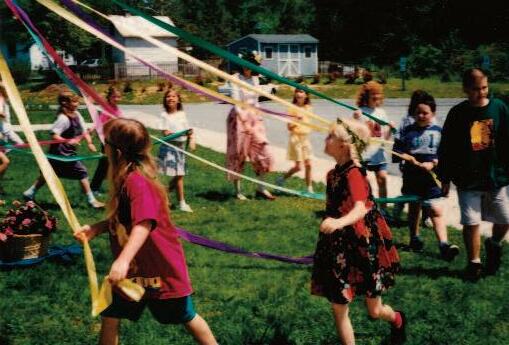
problems were handled. Bill: Fred Brooks knew i’d hired a lot of people, so he had me on the headmaster search committee, and Chip Denton was on the search committee, too. early on we asked him if he was interested in being the headmaster and he said no. So we did a nationwide search, which for such a little school maybe was over the top. fred: we got down to eight finalists, and then we arranged video interviews with the finalists, and it became evident as we got to the end of the process that we hadn’t seen anybody that seemed satisfactory. now, serving as chair of the Board and on the search committee was Chip, who was then an associate pastor at Church of the Good Shepherd, and the rest of the committee came to the conclusion that Chip would make an ideal headmaster. So we undertook the process of our praying over it and his praying over it and a certain amount of persuasion.
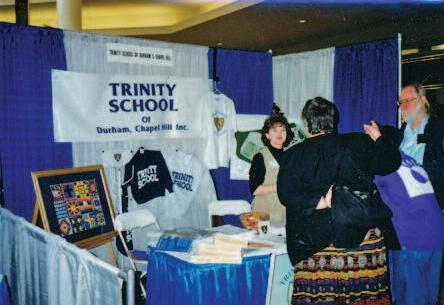
what are some of the trinity milestones that stick in your memory?
Janice: early on, the Land & Building Committee met at our dining room table, and they kept pulling out maps and looking all over orange County and Durham County—any place that would be large enough for a school that we were calling trinity School of Durham and Chapel Hill. when this land became available and we saw that the county line went right through the middle of this piece of property, it felt like a real blessing from God. Bill: John Sanders, a great Christian man who managed a local real estate company, gave me a call one day, and he said, “Bill, i think the Branch family would be interested in selling some of their land to you. i don’t want any fee, just send me a fruit basket if you’re able to buy the land. ” And of course that land ended up being the land that we’re on. He got his fruit basket.
laura: Leading into the first year that we were actually building the first building, we felt the energy and excitement that came with going from renting space to having our own space and really feeling like we were establishing ourselves as a school. there was a lot of stress but a lot of joy that came with that.
nancy: the Lower School Building seemed mighty big, but very quickly the teachers made it beautiful inside.
Sonya: A big milestone for my children was the expansion of the athletics program. My son Andrew was in middle school and got to play on a soccer team for trinity, and we hadn’t had a soccer team.
fred: the biggest single decision we made was to start a high school. there were decisions before that to not start one yet, because we didn’t have what it took, so we put it off for five years. this was very painful for some of the parents whose children missed the trinity high school experience. then we met every two weeks for a couple of years putting together the high school curriculum.
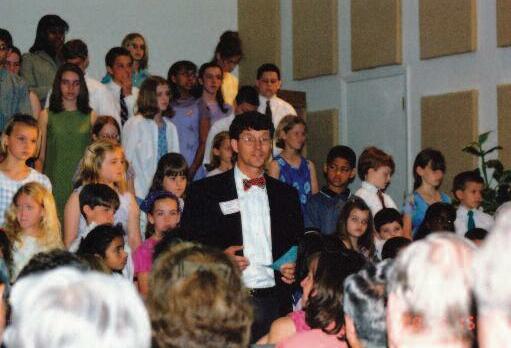
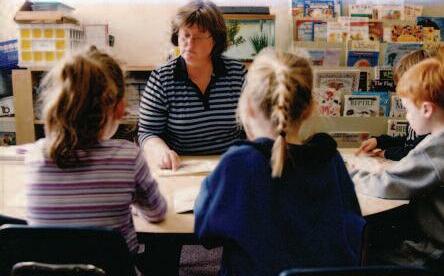
Janice: i think one vivid memory has to be our first high school graduation. we had had eighth grade graduations, but to be under a tent and have a graduation that was our own students and our own band and our own Board there saying, “well done, seniors!” —to me that will always be one of the very sterling moments. Chip: that graduation of the first upper School class was really powerful for me, because from the beginning we said we wanted to be a K–12 school (later a tK–12 school), and in 2010 that vision came to fruition.
How has trinity grown and changed?
Jane: it’s been exciting, at the beginning, early on for many years to have been a direct part, and even now more from afar—looking on, just standing, gazing out of this first building and seeing the additional buildings and the beauty and knowing all the extracurriculars, the engaging academics that continue to be a priority. rick: it’s also been interesting to see how we went from a time where nobody in this county knew of trinity School to now—people routinely bring up trinity to me as something i need to know about, and i hear that with a great sense of pleasure and even pride. rita: trinity started out with a culture, a personality of its own: Charlotte Mason’s philosophy, the ideas and concepts of classical studies. those things are more than a way of teaching, they are a way of being. Jim: it looks a whole lot more professional than when we started. there’s a whole lot more people around here knowing what they’re doing! it’s impressive, but i keep seeing these graduates and hearing about them and where they’re going and what they’re doing and the stories behind them and their winning awards and competitions. those are the intangibles, right? that’s the proof that something here is working. laura: over the years, God has brought so many people through trinity who have made an impact. each person who has really stepped through the door has had an opportunity to shape what trinity is today. i share with faculty and staff the admonition that God gives us not to worry about tomorrow. that’s true for trinity, too—God has this wonderful plan for this place, and over the years you see that plan begin to unfold. For me, it’s neat to have been part of that foundation, to have been part of trinity’s infancy and childhood and adolescence, and to get to see where we go from here. it’s an exciting time for trinity. we look ahead with much of the same anticipation and optimism our founders felt 25 years ago. So much has changed in two decades, but the core of our mission remains the same: excellent Christian teachers forming students into lifelong learners who will want to follow Christ in their callings. God has done trinity great good in its first decades, and we are grateful. we know that there is more for us ahead!
